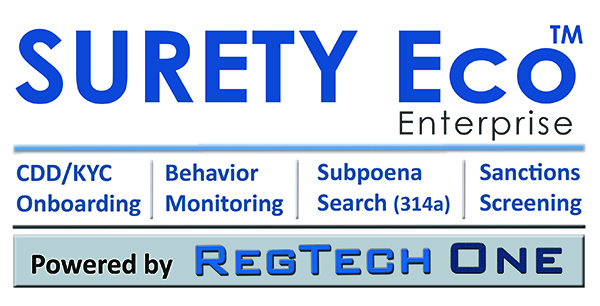AML de-risking squeezes towns along U.S./Mexico border
The cost of AML Compliance squeezes both banks and customers along the U.S./Mexico border. Describing parts of the area as a “banking desert,” a Bloomberg Businessweek report last week detailed the high price—both in dollars and on local economies—of the pressure on banks to keep money launderers out of the financial system. And for small-business owners along the border, finding a financial institution with whom to bank can be nearly impossible.
In border towns like Nogales, Arizona, even long-established businesses with transparent finances and good banking relationships lose their banking access due to the larger context of the region being a high risk for money laundering of drug profits and other cross-border crime. Potential violations of BSA/AML can come with steep consequences.
Bloomberg profiles a Nogales-based agricultural-seed business selling product on both sides of the border for nearly 30 years. When the local owner’s local bank was acquired by a larger bank, the larger bank cut off the business’ line of credit even though the local branch vouched for the account and the owner.
In this process of de-risking, financial institutions weigh the profits of serving businesses in high-risk areas versus the cost of enhanced due diligence and monitoring that accounts in these areas require. Opting not to spend time and money on extensive due diligence risks action and fines from examiners looking for sufficient AML Compliance.
The U.S. Government Accounting Office reported on this de-risking trend earlier this year. A GAO survey showed that “an estimated 80 percent (+/- 11 percent margin of error) of Southwest border banks terminated accounts for BSA/AML risk reasons. Further, according to the survey, an estimated 80 percent (+/- 11) limited or did not offer accounts to customers that are considered high risk for money laundering because the customers drew heightened regulatory oversight—behavior that could indicate de-risking,” according to the GAO.
Bloomberg reports that the business accounts most likely to encounter de-risking are those held by “Businesses run by Mexican nationals, those that transact on both sides of the border, and those that deal primarily in cash….”
The story describes in detail the stress that BSA/AML regulations and banks’ Compliance decisions can place on the economics of border towns like Nogales, where law-abiding business owners and citizens pay a price for the criminal elements and drug traffickers that roam the region, as well.
__________________________________
RegTech Platform and AML Ecosystem for comprehensive BSA/AML Compliance
With AML Partners’ platform technology for RegTech, updating and upgrading your AML and eGRC software solutions is easier, faster, and much less expensive. Contact us today to explore how platform technology and our end-to-end AML Ecosystem SURETY Eco and the SURETY modules –powered by the RegTech One platform–can transform the efficiency and effectiveness of your unique AML Compliance efforts. SURETY Eco includes fully integrated modules for CDD/KYC on-boarding, behavior/transaction monitoring, and sanctions screening. And AML Partners simplifies your end-to-end fully integrated AML Compliance efforts even further with an optional Subpoena Search module for FinCEN 314a and similar subpoena searches. Contact us today to learn more or schedule a demo of SURETY Eco, the AML Ecosystem powered by the RegTech One platform. With extraordinary configurability and built for API extensibility, the RegTech One platform powers not only an end-to-end AML ecosystem but also CECL workflows, vendor management, cyber risk workflows, FCPA workflows, and so much more.


